Slava Mogutin photographs kinks, sex and humans

The photographer’s latest transgressive photobook Analog Human Studies celebrates our differences, at a time when we need it most.
In Slava Mogutin’s new book Analog Human Studies, he dives into themes that have inspired him throughout his career: sexual liberation, otherness and eschewing anything “normal”.
Mogutin, 49, has long been drawn in by the transgressive. His fearless writings on gay culture got him exiled from his home country, Russia, and when he was 18, he became the first Russian to obtain political asylum in the USA on grounds of homophobic persecution. Since then, his books have challenged sexuality, stereotypes and conservatism. “I’m fascinated by misfits, rebels and outcasts – people with unique personalities, style and energy,” he says. “People who are comfortable and experimental with their bodies, gender and sexuality.”
His first book Lost Boys (2006) was a raunchy portrayal of Eastern European men, with some images bordering on the pornographic. With shaved heads, black combat boots, hard-ons and sweaty biceps, it was a raw, unfiltered commentary on masculinity via the world of fetish. “I was always interested in radical, transgressive expressions of human nature and sexuality,” Mogutin says. “For me, kinks or fetishes are way more inspiring than plain nudes. I find people in uniforms, fetish gear or bondage more compelling and visually stimulating than fully nude models.”
Mogutin’s second release, NYC Go-Go (2008), took us beyond the bouncer and into the pulsating walls of New York’s intoxicating gay nightlife scene. It was an unflinching tribute to his community that captured young gay men at their most liberated.
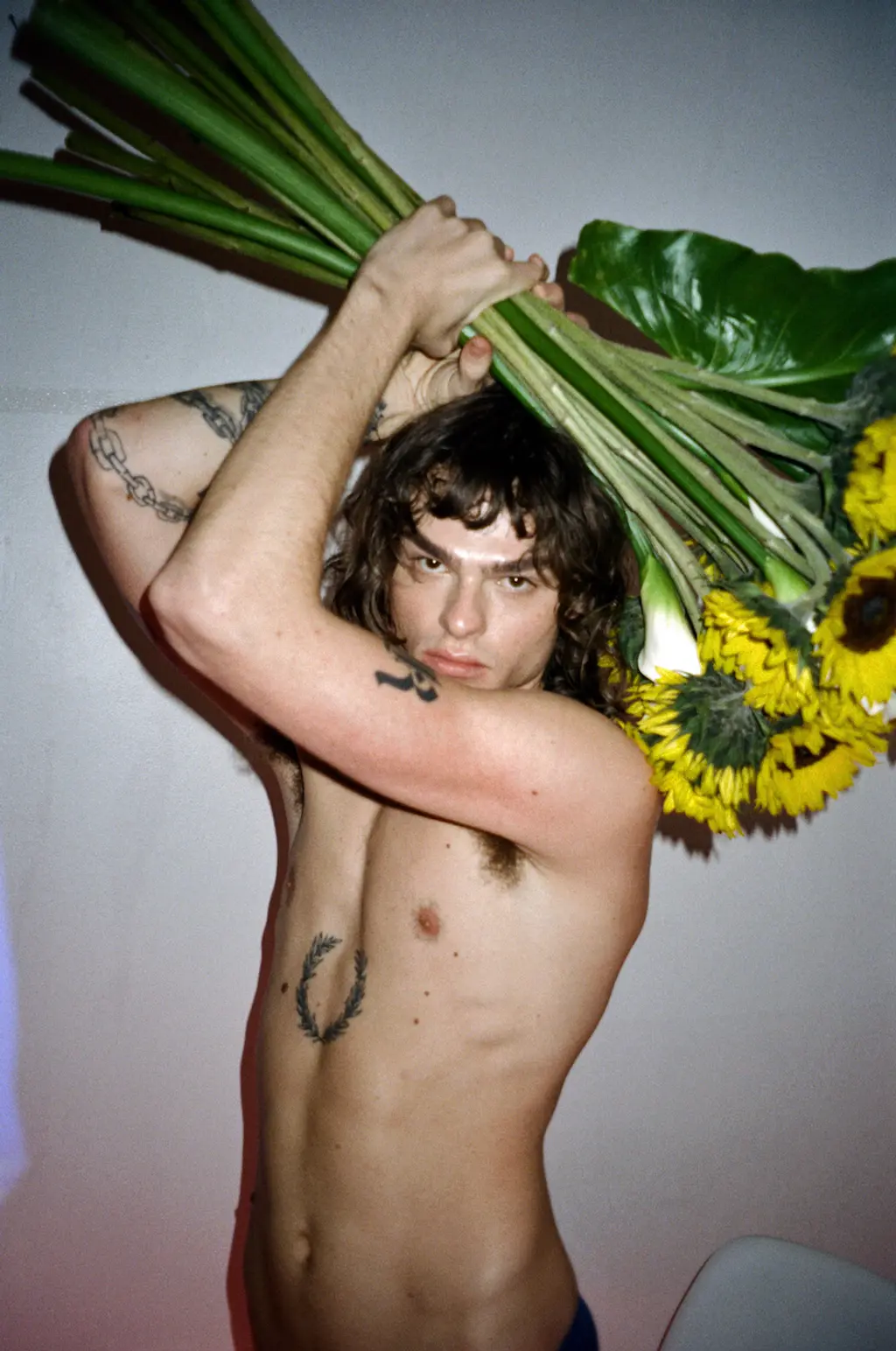

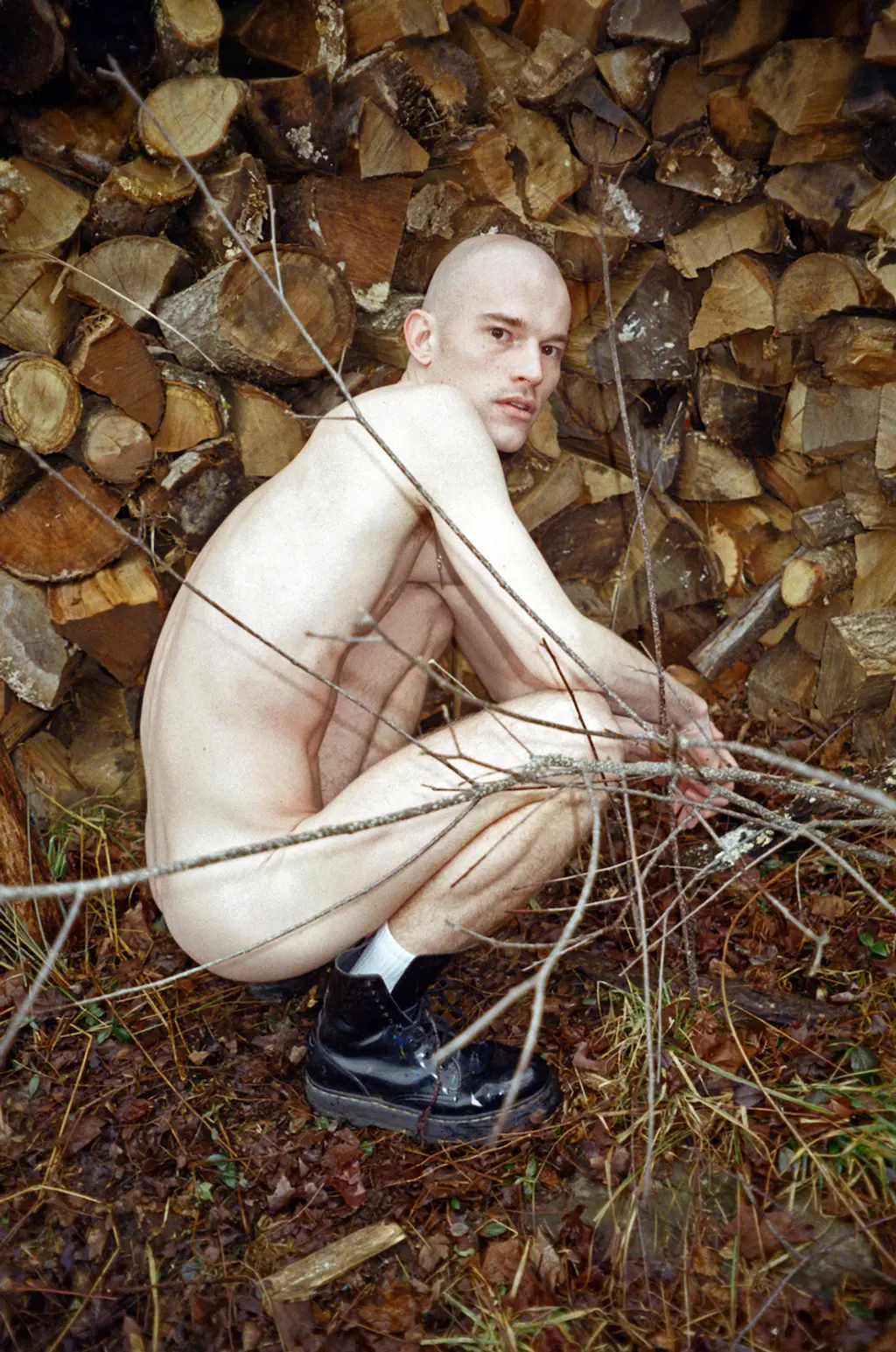
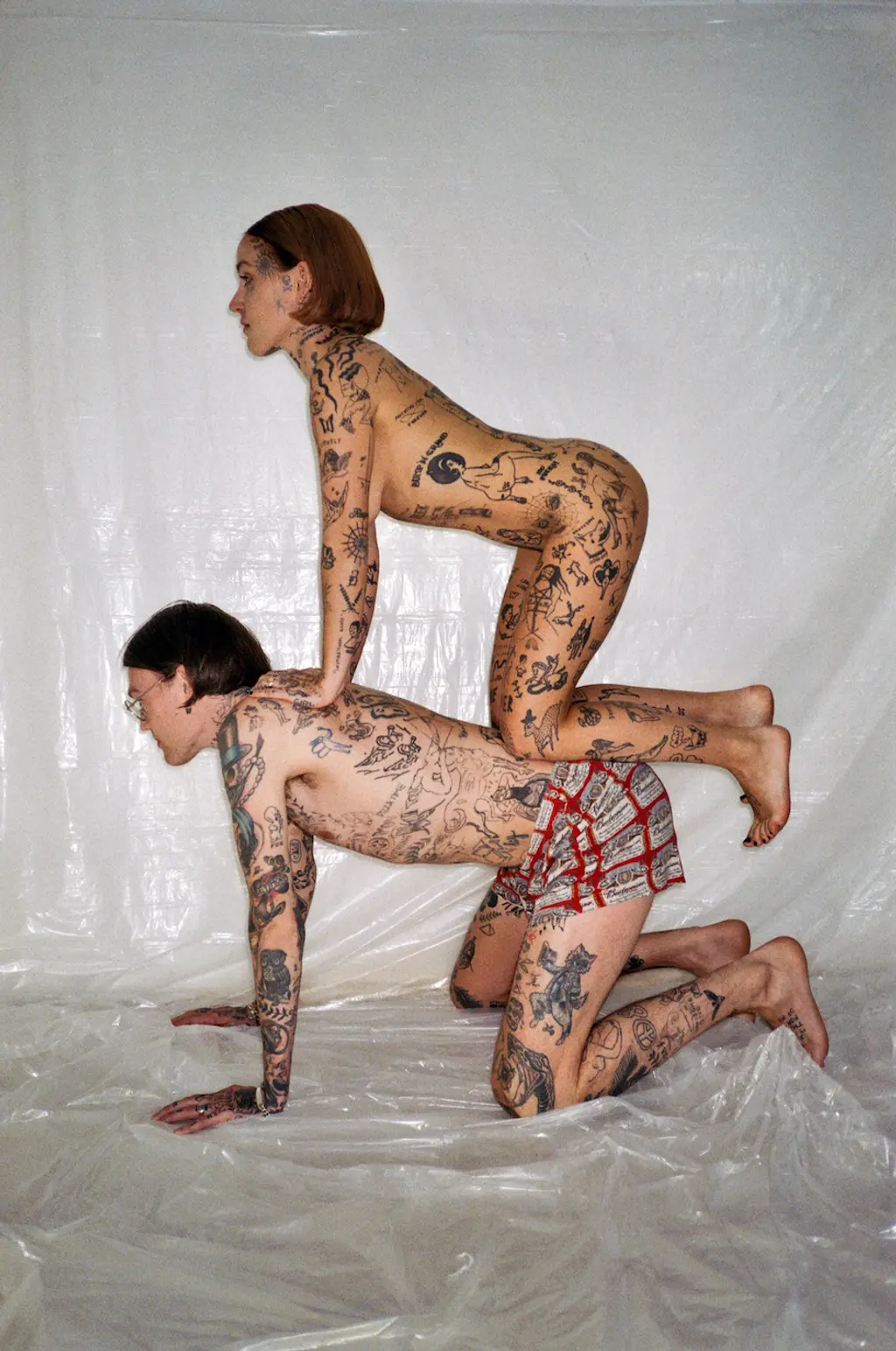
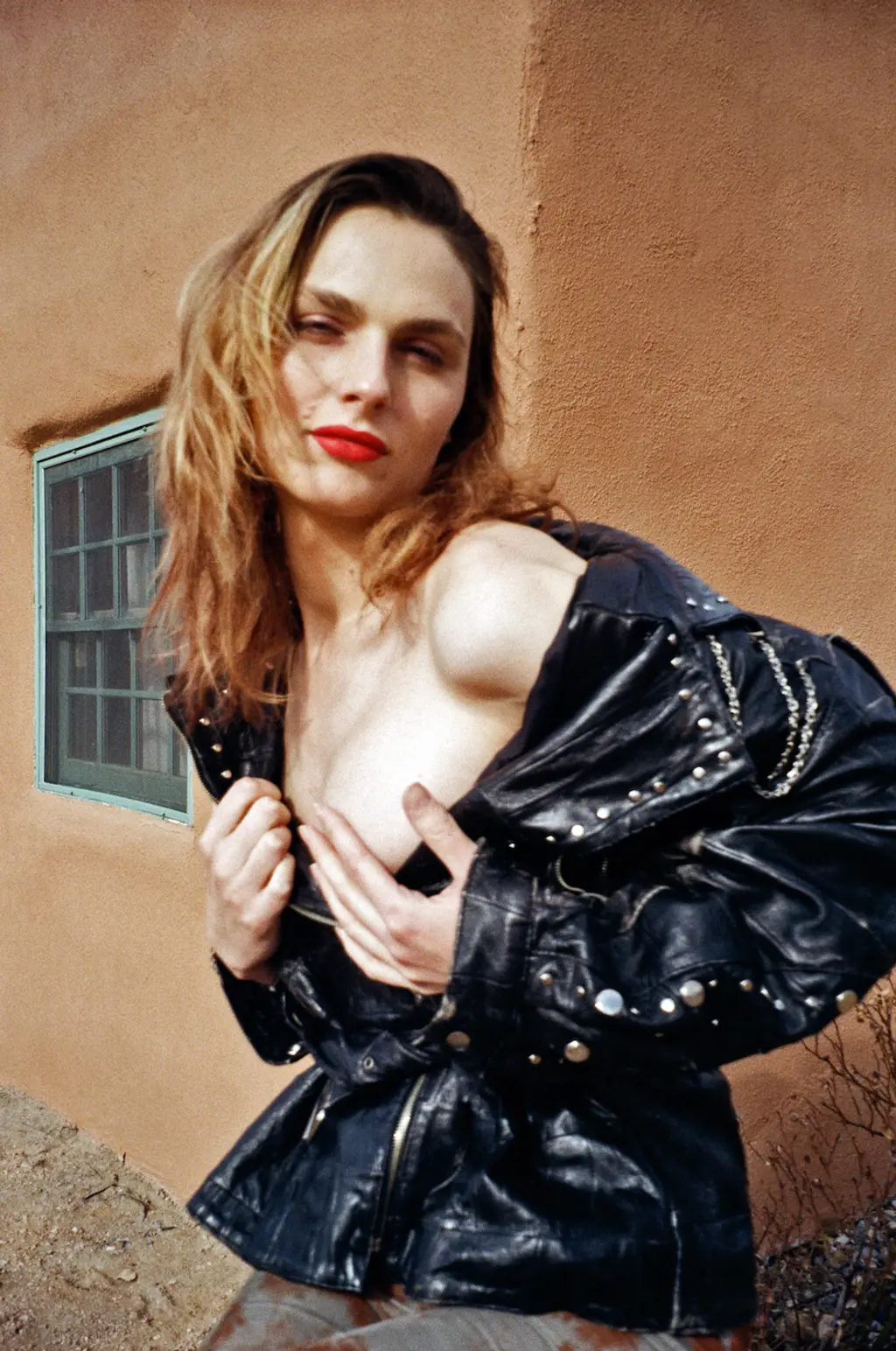
But while his first two books exclusively documented male figures and youth, Bros & Brosephines (2017) widened his range of subjects, setting the tone for Analog’s casting. “It’s more pansexual and intergenerational, with subjects ranging from teenagers to people in their 60s and 70s,” Mogutin says of the new book. “The title [Analog Human Studies] reflects the concept behind this body of work. It’s an attempt to examine what it means to be analog and human in the age of digital technology, virtual reality, robots and AI.”
Mogutin’s depiction of human life ranges from the romantic (see: a couple embracing on a beach) to spooky (see: Brooke Candy and her partner stacked on top of one another on all fours) and sexy (see: a pink-thonged arse straddling a chaise lounge).
Left in Mogutin’s hands, humans are opened up to all sorts of possibilities – vulnerable or inherently powerful – a balancing act rooted his past and the cultures, rules and behaviours he’s been exposed to.
“Everything I do as a writer and artist is informed by my dissident and refugee experience,” he says. “Coming from a very conservative and oppressive country like Russia, I explore and question the notions of displacement and identity, devotion and disaffection, pride and shame, love and hate.”
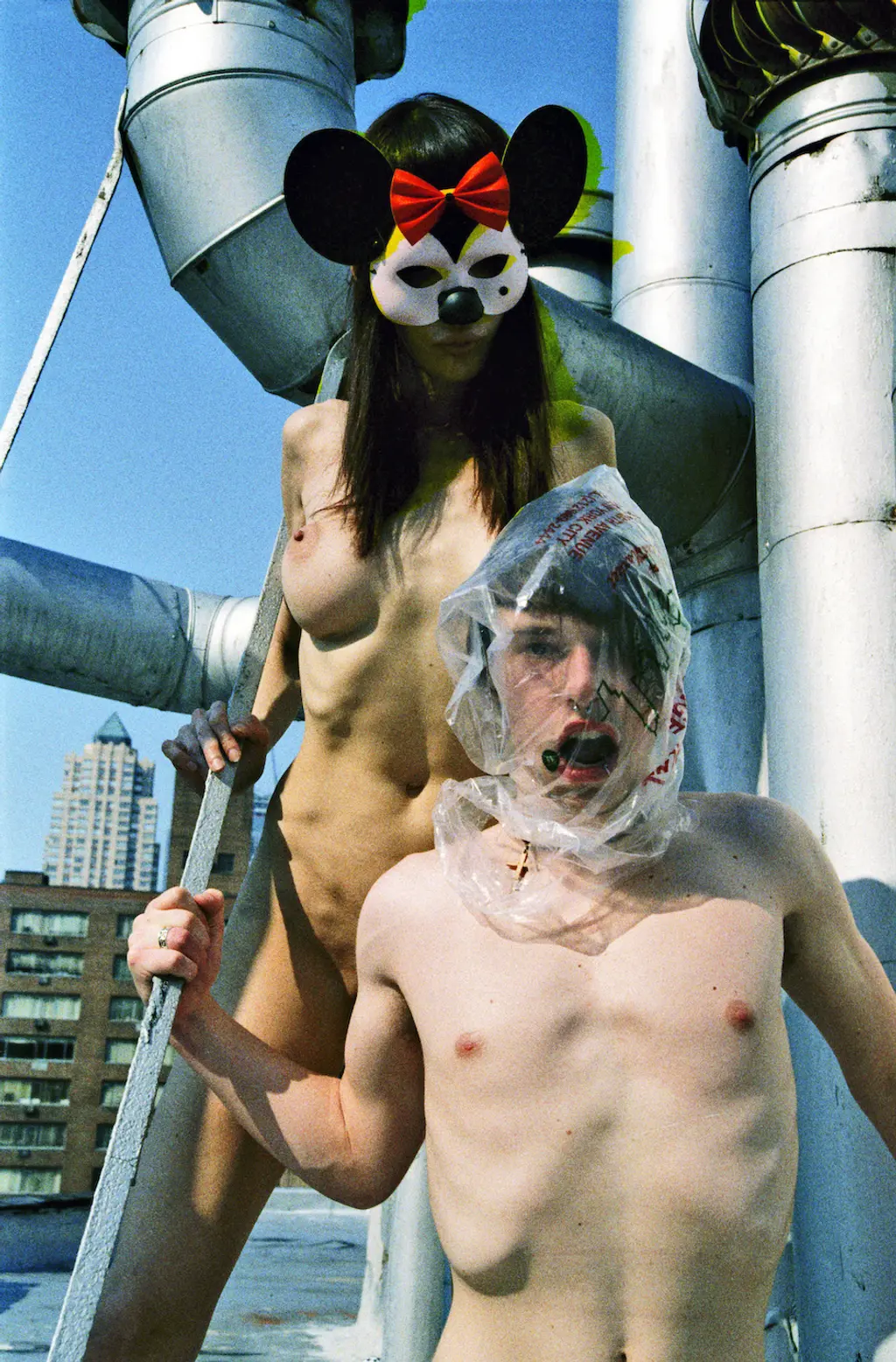
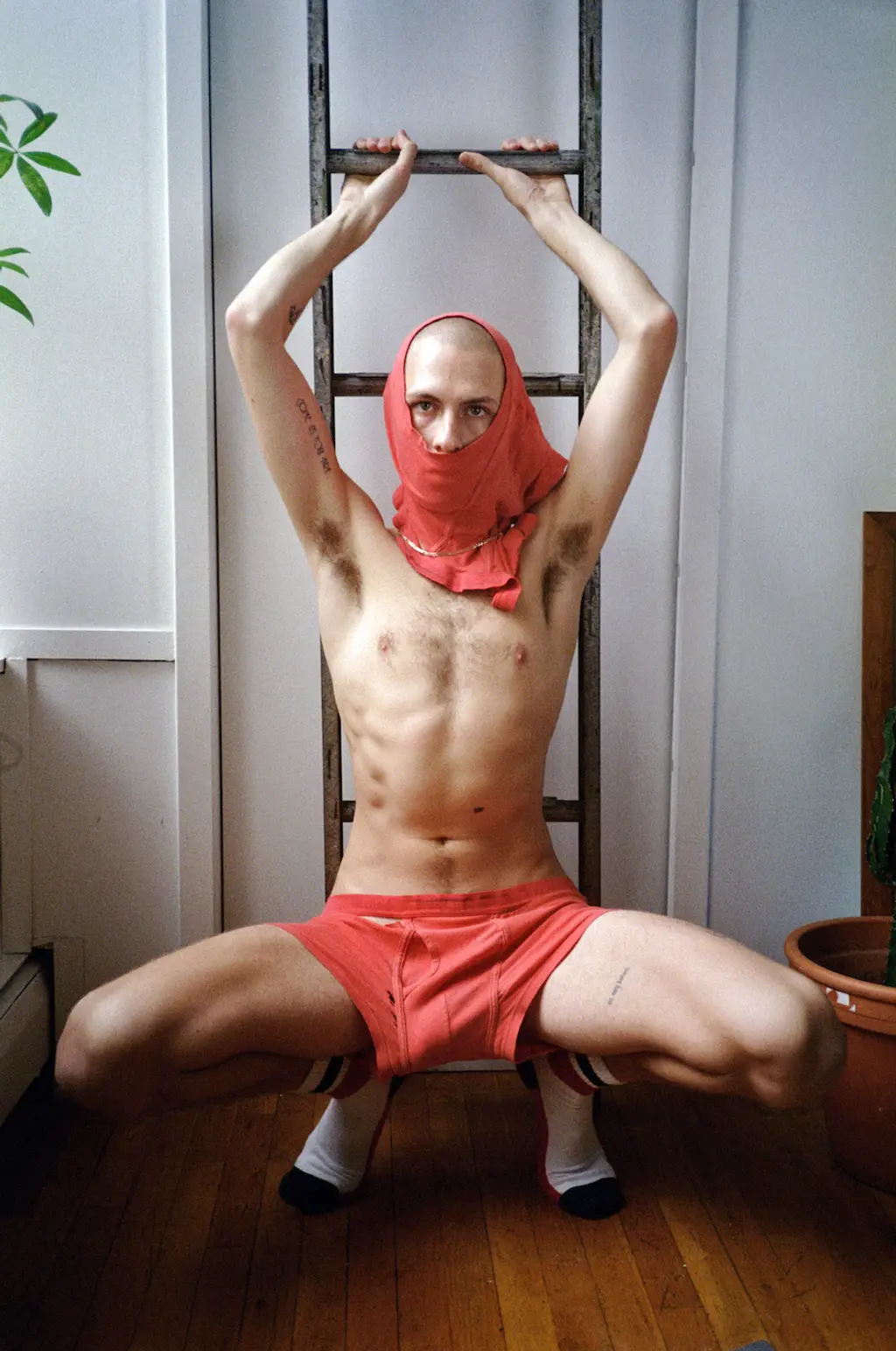
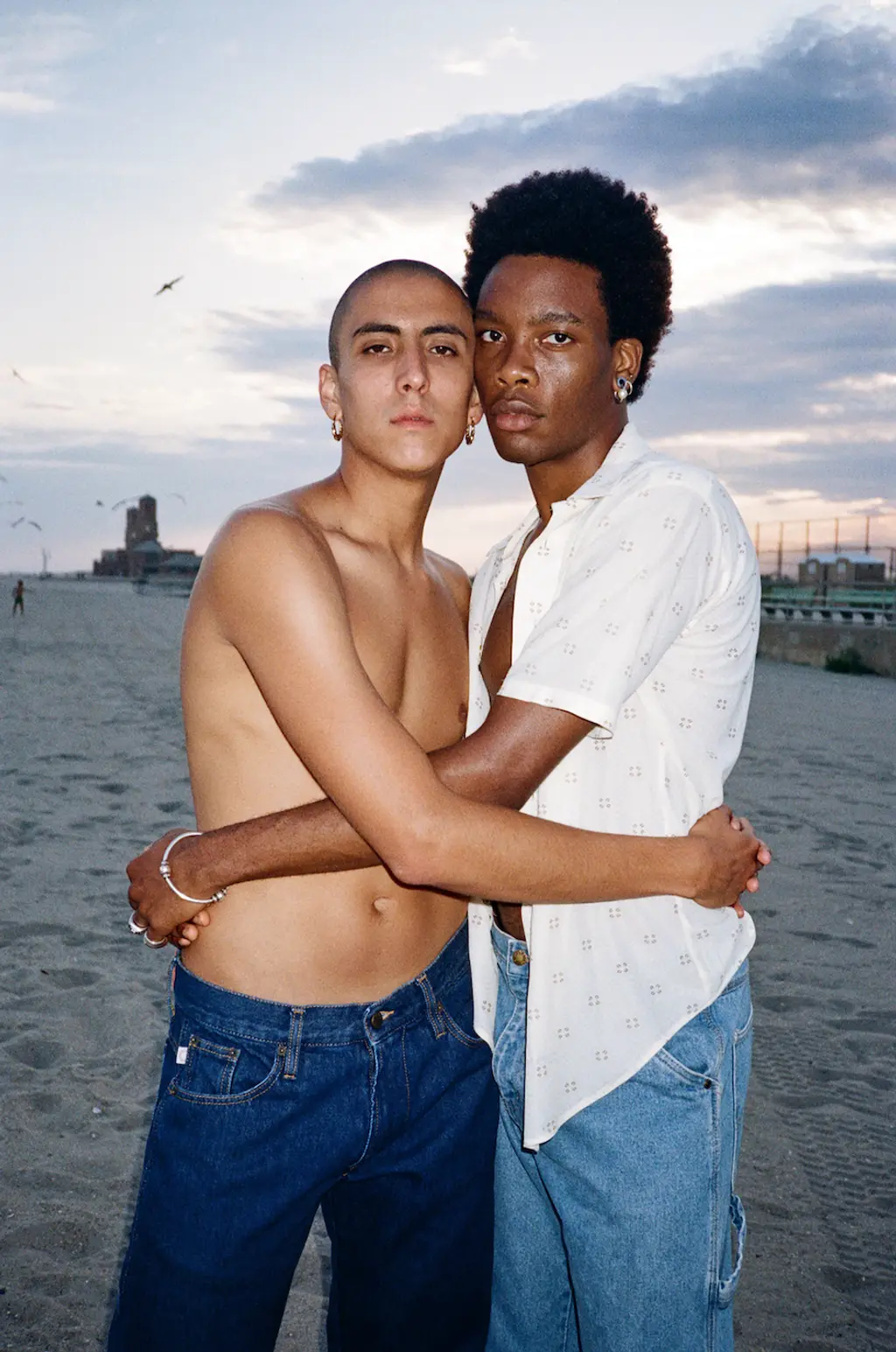
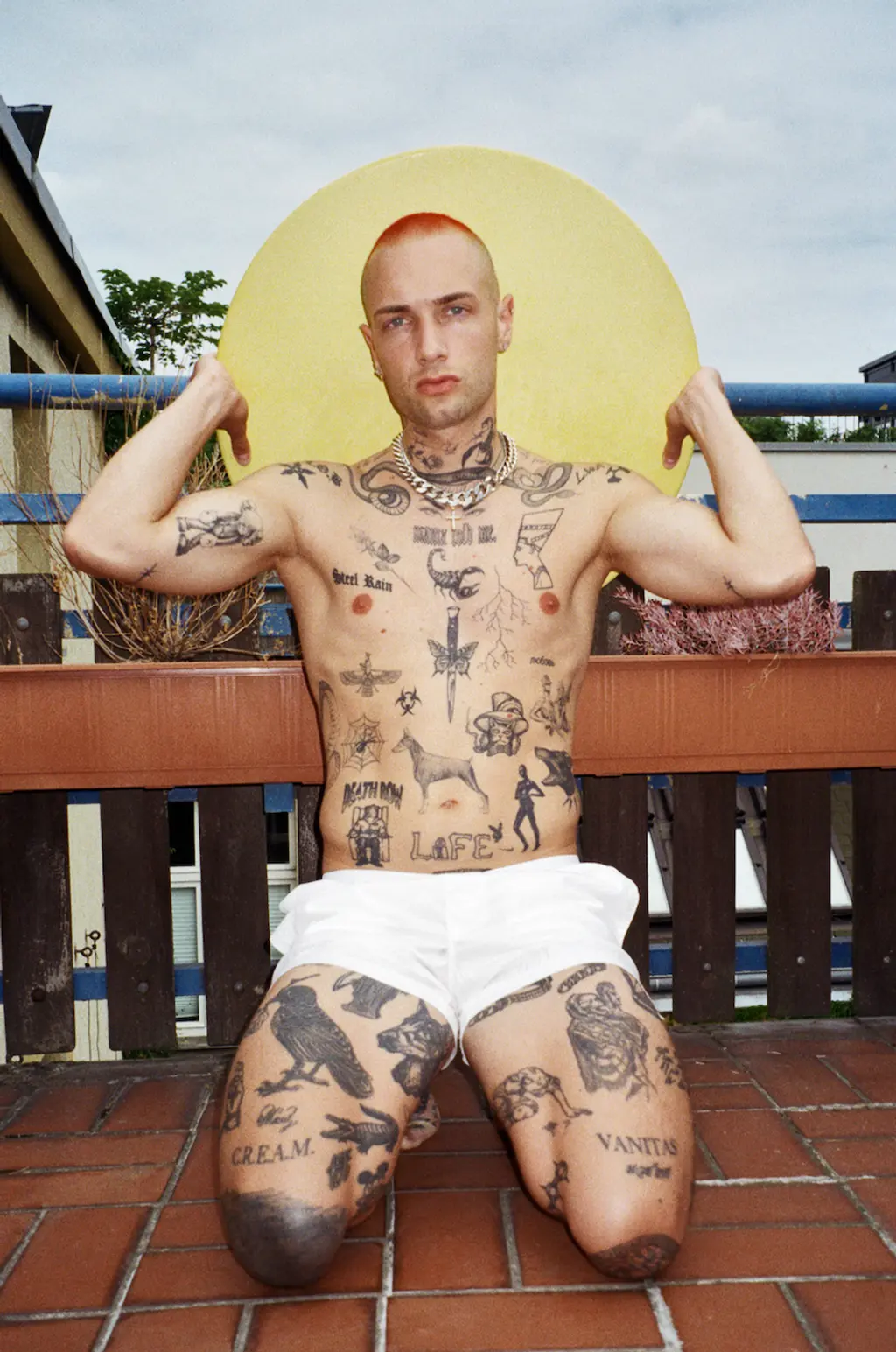
During the ongoing assault on queer people around the world, Analog feels brilliantly riotous, a protest for the LGBTQ+ people facing persecution in the States and here in the UK. “Whether I like it or not, my work always was and will remain political,” he says, before pointing out that there are very few queer Russian-American artists who can “claim the right to examine and criticise both cultures.”
As a victim of censorship, both by the Russian state and, in the US, “giant tech corporations that masquerade as social networks while policing our communities,” Mogutin’s ultimate mission as an artist is to “address and confront these evils, speaking my mind and standing up to the existing power structures and status quo.” Almost three decades since moving to the USA, his vision never wavers.
As for those picking up his new book, he has a final message of acceptance: “Don’t be afraid of thinking and looking outside the box, outside your comfort zone,” he says. “Abandon negative judgement and preconceptions. Being different is a blessing, not a curse.”
Analog Human Studies is available from MenOnPaperArt. The accompanying exhibition is currently on view at The Bureau of General Services – Queer Division in New York City.










